Savoir-Faire
WEAVING
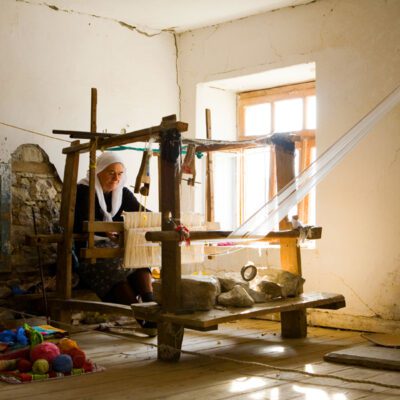
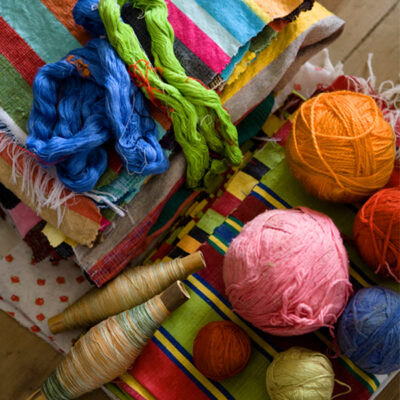
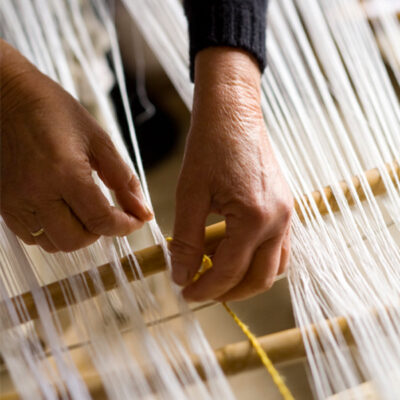
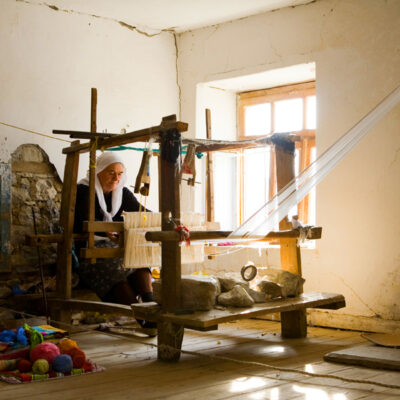

Weaving has been a lively tradition all over Albania for centuries. Each region has its specific patterns and techniques, geometrical in the south, naive and colorful in the mountainous regions of the North. At the beginning of the 1990s during the democratic transition from the collectivist economy, all the state workshops closed and weaving became a domestic based activity.
In the isolated hamlets of Dukagjin, a mounainous region in the north of Albania possibly the cradle of Albania’s national culture, women have been weaving knotted pile rugs for centuries, bringing warmth and color to their households during the long and cold winters.
Our rugs are still woven one by one on the same looms. Two different piles techniques are used: a thick pile made with a twisted yarn, or a pile made with one or more non twisted yarn. The warp is in cotton, the weft is in wool from local Ruud breed sheep, harvested in the beautiful valleys around Mount Korab.
As the workshop produces the yarn and colours, any size and colour combination can be made.
Po! Paris is now mobilising this talent by working closely with a local organisation of women and bringing designers from Paris while patiently re-creating the yarn production from the best local wool. Today three different workshops weave our rugs, each one with its own specific know-how.
The collaboration led to the creation of a new community based workshop where ancestral traditions and very qualified craftsmanship contribute significantly to the revenue for many households, capacity building and training for the new generations.
We use a wide range of techniques, from flat woven to hand knotted, an original mix of both and embroidered on flat woven, as shown in the picture above. Three to four weavers working side by side weave our large rugs one by one by hand on a vertical loom.

embroidered jute
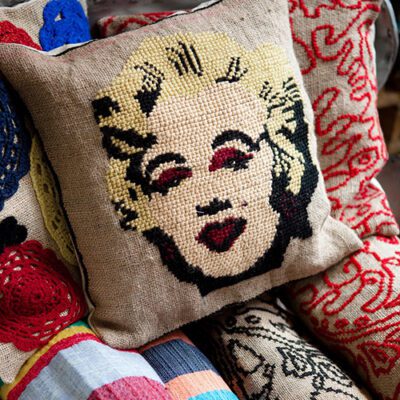
In Tirana, you can have virtually anything embroidered
typically for special occasions such as weddings or engagements.
The women practice their skills on jute from coffee sacks. We decided to leave the up cycled fibre apparent as background of original designs by Po! Paris or Nathalie Lété and Sarah Wilkins.
The original prints of the brand of coffee beans can
occasionally be visible. The collection ranges from simple tote bags in two sizes, to cushion covers. With time a group of women has become a small cooperative with help from our local partner in Albania creating a real business providing additional income to households in Albania.
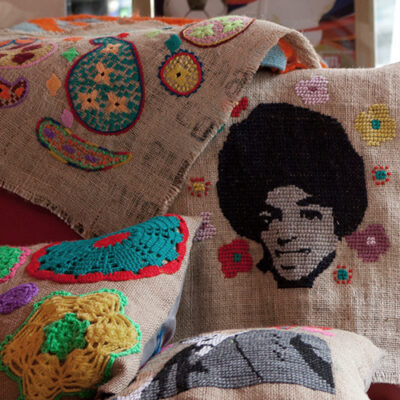
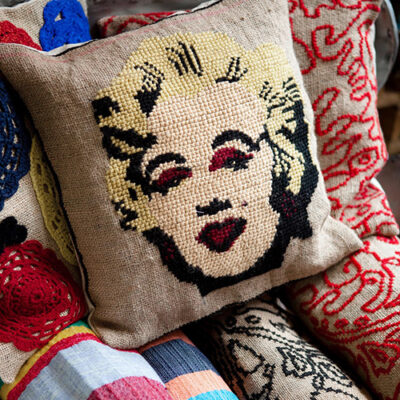
In Tirana, you can have virtually anything embroidered typically for special occasions such as weddings or engagements.
The women practice their skills on jute from coffee sacks. We decided to leave the up cycled fibre apparent as background of original designs by Po! Paris or Nathalie Lété and Sarah Wilkins.
The original prints of the brand of coffee beans can occasionally be visible. The collection ranges from simple tote bags in two sizes, to cushion covers. With time a group of women has become a small cooperative with help from our local partner in Albania creating a real business providing additional income to households in Albania.
FELT
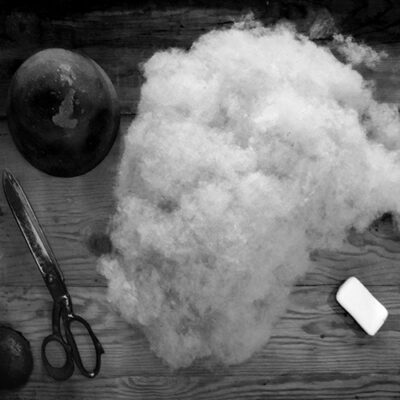
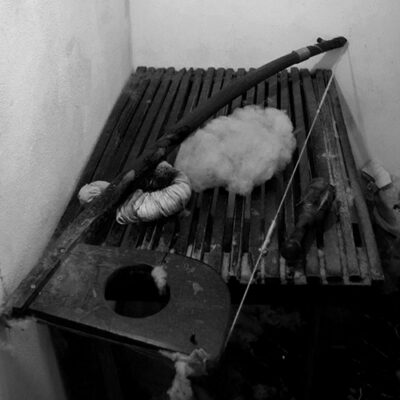
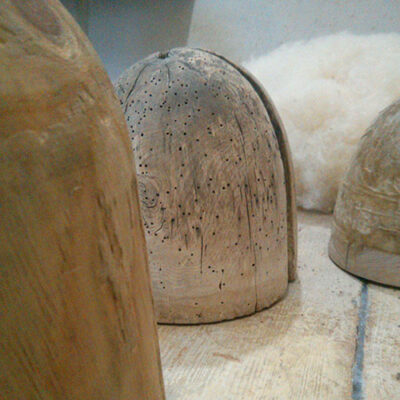
Felt hats, “qelesh ” are still part of the traditionnal way of life in the rural Albania.
Each town and country has it’s own shape, all made in the same way as they have been for centuries. The wool from sheep of the impervious lands of the east is processed through a number of complex and laborious operations, carded at first into a light cloud, then worked into a thin and resistant sheet formed around a wooden shape through a very long felting process with warm water and soap.
Our lamps are thin yet firm thanks to the high quality of the wool from the late summer shearing and the long felting process letting the light filter through the wool, creating a warm and soothing atmosphere. Our producer works in the same small workshop where he learnt from his father, following a family tradition passed on through many generations.
By using the traditional hat making technique to make a lamp, adding new shapes and sizes, Po! Paris is contributing to the survival of a noble and respected profession by helping it adapt to the irresistible advance of modern life style.


